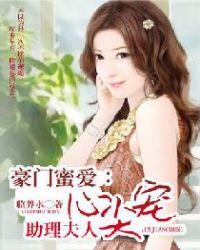LETTER 232
您可以在百度里搜索“The Works of Charles and Mary Lamb — Volume 5 艾草文学(www.321553.xyz)”查找最新章节!
LETTER 232
CHARLES LAMB TO WILLIAM WORDSWORTH
[P.M. September 23, 1816.]
My dear Wordsworth, It seems an age since we have corresponded, but indeed the interim has been stuffd out with more variety than usually checquers my same-seeming existence.—Mercy on me, what a traveller have I been since I wrote you last! what foreign wonders have been explored! I have seen Bath, King Bladud's ancient well, fair Bristol, seed-plot of suicidal Chatterton, Marlbro', Chippenham, Calne, famous for nothing in particular that I know of—but such a vertigo of locomotion has not seized us for years. We spent a month with the Morgans at the last named Borough—August—and such a change has the change wrought in us that we could not stomach wholesome Temple air, but are absolutely rusticating (O the gentility of it) at Dalston, about one mischievous boy's stone's throw off Kingsland Turnpike, one mile from Shoreditch church,—thence we emanate in various directions to Hackney, Clapton, Totnam, and such like romantic country. That my lungs should ever prove so dainty as to fancy they perceive differences of air! but so it is, tho' I am almost ashamed of it, like Milton's devil (turn'd truant to his old Brimstone) I am purging off the foul air of my once darling tobacco in this Eden, absolutely snuffing up pure gales, like old worn out Sin playing at being innocent, which never comes again, for in spite of good books and good thoughts there is something in a Pipe that virtue cannot give tho' she give her unendowed person for a dowry. Have you read the review of Coleridge's character, person, physiognomy &c. in the Examiner—his features even to his nose—O horrible license beyond the old Comedy. He is himself gone to the sea side with his favorite Apothecary, having left for publication as I hear a prodigious mass of composition for a Sermon to the middling ranks of people to persuade them they are not so distressed as is commonly supposed. Methinks he should recite it to a congregation of Bilston Colliers,—the fate of Cinna the Poet would instantaneously be his. God bless him, but certain that rogue Examiner has beset him in most unmannerly strains. Yet there is a kind of respect shines thro' the disrespect that to those who know the rare compound (that is the subject of it) almost balances the reproof, but then those who know him but partially or at a distance are so extremely apt to drop the qualifying part thro' their fingers. The "after all, Mr. Wordsworth is a man of great talents, if he did not abuse them" comes so dim upon the eyes of an Edinbro' review reader, that have been gloating-open chuckle-wide upon the preceding detail of abuses, it scarce strikes the pupil with any consciousness of the letters being there, like letters writ in lemon. There was a cut at me a few months back by the same hand, but my agnomen or agni-nomen not being calculated to strike the popular ear, it dropt anonymous, but it was a pretty compendium of observation, which the author has collected in my disparagement, from some hundreds of social evenings which we had spent together,—however in spite of all, there is something tough in my attachment to H—— which these violent strainings cannot quite dislocate or sever asunder. I get no conversation in London that is absolutely worth attending to but his. There is monstrous little sense in the world, or I am monstrous clever, or squeamish or something, but there is nobody to talk to—to talk with I should say—and to go talking to one's self all day long is too much of a good thing, besides subjecting one to the imputation of being out of one's senses, which does no good to one's temporal interest at all. By the way, I have seen Coler'ge but once this 3 or 4 months. He is an odd person, when he first comes to town he is quite hot upon visiting, and then he turns off and absolutely never comes at all, but seems to forget there are any such people in the world.
I made one attempt to visit him (a morning call) at Highgate, but there was something in him or his apothecary which I found so unattractively-repulsing-from any temptation to call again, that I stay away as naturally as a Lover visits. The rogue gives you Love Powders, and then a strong horse drench to bring 'em off your stomach that they mayn't hurt you. I was very sorry the printing of your Letter was not quite to your mind, but I surely did not think but you had arranged the manner of breaking the paragraphs from some principle known to your own mind, and for some of the Errors, I am confident that Note of Admiration in the middle of two words did not stand so when I had it, it must have dropt out and been replaced wrong, so odious a blotch could not have escaped me. Gifford (whom God curse) has persuaded squinting Murray (whom may God not bless) not to accede to an offer Field made for me to print 2 vols. of Essays, to include the one on Hog'rth and 1 or 2 more, but most of the matter to be new, but I dare say I should never have found time to make them; M. would have had 'em, but shewed specimens from the Reflector to G—-, as he acknowleged to Field, and Crispin did for me. "Not on his soal but on his soul, damn'd Jew" may the malediction of my eternal antipathy light—We desire much to hear from you, and of you all, including Miss Hutchinson, for not writing to whom Mary feels a weekly (and did for a long time feel a daily) Pang. How is Southey?—I hope his pen will continue to move many years smoothly and continuously for all the rubs of the rogue Examiner. A pertinacious foul-mouthed villain it is!
This is written for a rarity at the seat of business: it is but little time I can generally command from secular calligraphy—the pen seems to know as much and makes letters like figures—an obstinate clerkish thing. It shall make a couplet in spite of its nib before I have done with it,
"and so I end
Commending me to your love, my dearest friend."
from Leaden Hall, Septem'r something, 1816
C. LAMB.
[The Lambs had taken summer lodgings—at 14 Kingsland Row,
Dalston—which they retained for some years.
Hazlitt's article on Coleridge was in The Examiner for September 8. Among other things Hazlitt said: "Mr. Shandy would have settled the question at once: 'You have little or no nose, Sir.'"
One passage in the article gives colour to the theory that Hazlitt occasionally borrowed from Lamb's conversation. In Lamb's letter to Wordsworth of April 20, 1816, he has the celebrated description of Coleridge, "an archangel a little damaged." Hazlitt in this article writes: "If he had had but common moral principle, that is, sincerity, he would have been a great man; nor hardly, as it is, appears to us—
"'Less than arch-angel ruined, and the excess
Of glory obscur'd.'"
Hazlitt may have heard Lamb's epithet, backed probably by the same passage from_ Paradise Lost_.
Crabb Robinson tells us, in his Diary, that Coleridge was less hurt by the article than he anticipated. "He denies H., however, originality, and ascribes to L. [Lamb] the best ideas in H.'s articles. He was not displeased to hear of his being knocked down by John Lamb lately."
Coleridge's new work was The Statesman's Manual; or, the Bible the best Guide to Political Skill and Foresight: A Lay Sermon, 1816. It had been first announced as "A Lay Sermon on the Distresses of the Country, addressed to the Middle and Higher Orders," and Hazlitt's article had been in the nature of an anticipatory review.
I do not find anywhere the "cut" at Lamb from Hazlitt's hand, or indeed any one's hand, to which Lamb refers. Hazlitt at this time was living at No. 19 York Street, Westminster, in Milton's old house.
"Agni-nomen." From agnus, a lamb.
"After all, Mr. Wordsworth …"—the Edinburgh Review article on The Excursion, in November, 1814, beginning, "This will never do," had at least two lapses into fairness: "But the truth is, that Mr. Wordsworth, with all his perversities, is a person of great powers"; and "Nobody can be more disposed to do justice to the great powers of Mr. Wordsworth than we are."
"The printing of your Letter." The Letter to a Friend of Burns (see above).
"2 vols. of Essays." These were printed with poems as The Works of Charles Lamb by the Olliers in 1818 (see later).
"Crispin"—Gifford (see note to the letter to Wordsworth, early January, 1815).
"Southey." Hazlitt's attacks on the Laureate were continuous.] The Works of Charles and Mary Lamb — Volume 5



